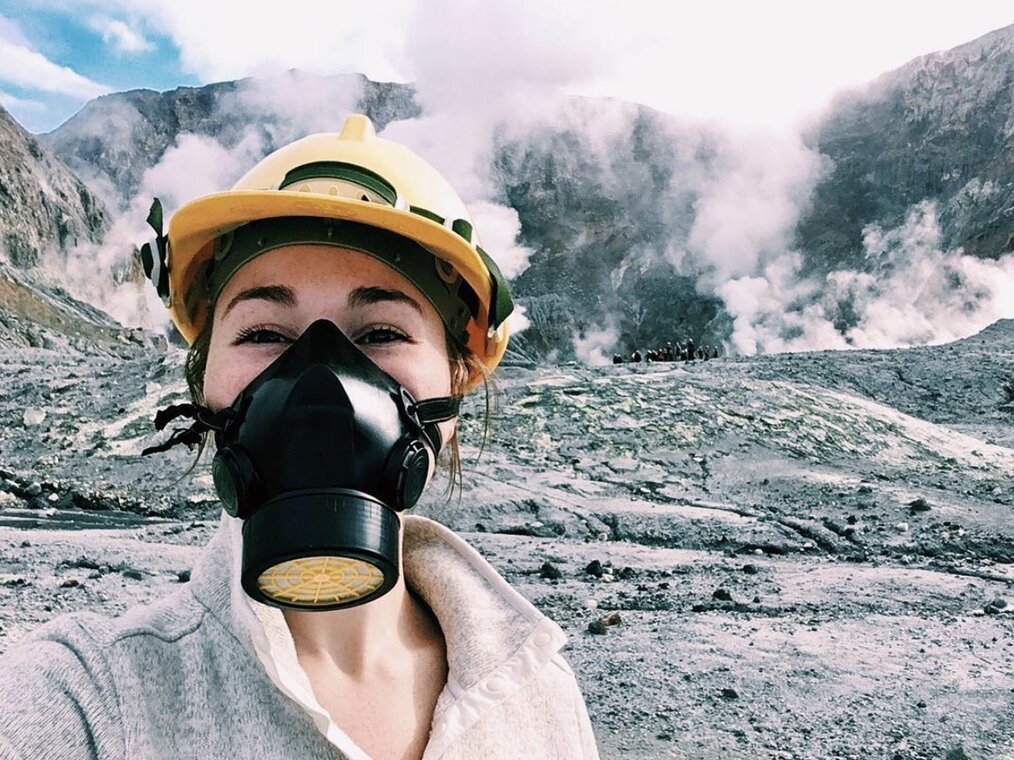
How to Apply for Jobs Abroad
Searching for and applying to international jobs can be an intimidating task. Here are 4 useful steps to follow in order to find and secure work abroad.

Moving abroad is a dream for many, but finding an international job can be a daunting task. Knowing where to start and how to proceed is enough to stop even the most seasoned travelers in their tracks. Finding a job and relocating to another country isn't like any travel you're used to -- and that's a good thing! Living overseas is an exciting experience and can promote both personal and professional growth.
Are you ready to work abroad? We’re here to show you how to apply for jobs overseas in four simple steps.
Step 1. Use international job boards to search for positions abroad
.jpg?itok=V9RNPNt4)
The first and likely most daunting task in applying for jobs abroad is reviewing international job boards and finding a position that you can apply for in the country or countries where you desire to work abroad. This step can be confusing since there is no clear-cut model for finding work abroad, but resources like the Go Overseas Job Board can help you review open positions that are recruiting internationally.
Some other options we'll explain in-depth below include:
- Networking
- Overseas job fairs
- Worldwide companies hiring overseas positions
- International job boards
- Overseas US government jobs
- International recruiters
- Apply to overseas jobs in-person
- Bonus: Study or intern abroad
Don't limit your overseas job search to just one channel! When trying to figure out how to get a job in another country, branching out and exploring these various options simultaneously will increase your chances of finding the perfect position.
Networking
Networking is an essential skill set to finding a job in nearly every situation. These days networking is both done the old fashion way - through word of mouth, friends, and parties - as well as online. You can often find communities of digital nomads and international job seekers, as well as companies looking to hire them, through groups on social media sites like LinkedIn. Finding online groups with similar career interests is a fantastic place to start making contacts internationally and may even land you your first overseas job.
Create a profile that stands out, including your passions, experiences, and goals. But don't just sit back and watch - be proactive. Ask people who hire on behalf of prospective companies abroad to connect. Maybe even send them a message seeking advice. Also, remain active in these Linkedin and Facebook groups and engage with content people post that is of interest to you. Apply for every job that seems of interest to you, even if it's a longshot position.
Our top tip: If you graduated from university, use your alumni association to create contacts. See what the rest of your fellow alums are doing, and reach out to those living in countries where you'd be interested in working. Alumni events can also be a valuable way to grow your list of professional contacts.
Don't just sit back and watch - be proactive. Ask people who hire on behalf of prospective companies abroad to connect. Look at the job listings every day based on your preferences.
Overseas job fairs
Search your local area and attend overseas job fairs. International job fairs are yet another way to find companies recruiting people to work in their international offices. You could even go through an interview on the spot, but at the least, you'll get your foot in the door.
- Our top tip: A quick google search for the phrases "overseas job fair" or "abroad job fair" then the name of your nearest city will likely result in at least one option.
Worldwide companies hiring overseas positions
Rather than just applying straight through, say a UK company, in hopes of moving to London, apply for jobs with US companies that have offices around the globe. Companies like Price Waterhouse and Cooper, Wells Fargo, Datacom, Hilton, and Conde Nast, to name a few, are worldwide. They're looking for people willing to travel and move abroad in an array of positions too.
The only drawback of applying for international jobs this way is that you might have to wait a year or more to move abroad with your company. They'll want to train you locally and let you get established in the organization before sending you off.
- Our top tip: This method is perfect for those who want to work in hotels. One of the biggest things an American hotel company needs when it opens a new location abroad is English speakers who know the company and how it works. Plus, most major chains have locations all around the world.
International job boards
There are great resources for finding positions nearly anywhere in the world that you are interested in working, but it's key to narrow your search to the desired country or set of countries. When you find a position of interest to you, understanding if they sponsor international workers is also essential. Certain jobs will say in their description that they're open to sponsorship. Websites like Indeed have country-specific pages to search postings in your target country.
- Our top tip: Some websites even have a filter to help you search for companies looking for US citizens or English speakers specifically. You may even be able to set up email job alerts so you can be among the first to apply for newly added positions.
Overseas US government jobs
The US government probably offers more international job positions to its citizens than practically any private company, and they also can easily get your visa sorted out with other countries. Plus, the US government almost always needs US citizens to work for it at all times, so if you're an American, there is less competition in the country than in non-government positions.
- Our top tip: Searching and applying for jobs abroad through the US government is simple. Go to USAJobs.gov, type in the sort of job you are skilled in and country you wish to work, and a listing of available positions will come up. You can apply directly through the website.
International recruiters
Entire agencies exist that work on behalf of international companies to find workers from around the world. Going through a recruitment agency cuts the hassle of looking for positions abroad and companies willing to sponsor, but it comes at a price. Make sure you thoroughly read any contract you sign with a recruitment agency as they will sometimes require a percentage of your future paychecks for finding you a job abroad. It might not be a lot, but be aware of it.
- Our top tip: Recruiting agencies are very easy to find online. Just google a phrase like, "recruiters for jobs abroad" and contact agencies in your area.

Apply to overseas jobs in-person
This option is risky, but it will definitely prove your determination. Basically, show up in a country and start applying in-person or setting up interviews while you're there. Though the internet is a fantastic source, nothing compares to being in a place and meeting people. While it's typically illegal to work in another country on a visitor's visa, it's not illegal to look for work. Also, many countries have working holiday visas that allow you to travel and work for a set amount of time.
- Our top tip: Be aware that in most cases, if you enter a country on a tourist visa, you will probably need to leave the country while you sort out work permits and visas.
Bonus: Intern or study abroad
Although a bit unconventional, a way to get face-to-face with overseas companies hiring is to either study or intern abroad. There are endless intern abroad and study abroad options out there. If you know you eventually want to join an overseas workforce, use these opportunities to start getting your foot in the door. Sometimes you need to spend money to make money!
Intern abroad: An internship in a city overseas is a chance to prove how good a worker you are, and begin growing an international professional network. Several different program providers, like AIFS and Hutong School, and IFSA-Butler, can actually set people up with internships abroad so they don't have to go through the hassle of finding one themselves. You can also apply to internships through your university and/or do them in addition to studying abroad.
Often, visa options for people on an internship are a lot easier to get approved than actual work permits. Make the most of this opportunity and at the end of it make it clear to your boss that you want to stay.
Study abroad: Studying abroad offers those same opportunities to either find an internship or at least make contacts for possible employers, but one way to almost guarantee yourself a spot working abroad is to get a college degree from a university abroad. Usually, if a country trains and educates you, they'll try to keep you there to work. Thankfully, the study visa process is usually straightforward and clear for most countries.
- Our top tip: A lot of student visas, such as those in Australia, not only permit international students to work up to a certain amount of hours while in school but also grant a visa to stick around for a year after graduating to work full time. Once you're working full-time somewhere or even have a reference from a company in the country, you're in the perfect position to find sponsorship to stay on a working visa.
Helpful tips for your job search:
United States citizens may find work in these popular destinations:
.png?itok=uyiqBS1N)
If you are from a country outside of the US, there are popular countries and industries for you, too! For example, Indian citizens can search for jobs in these countries in these popular industries:
.png?itok=AAFkuMiI)
Step 2. Send an application tailored to your destination country

Once you find a position that you know you're right for, start applying. Easy as that, right?
Nope.
Even if you speak the same language as the country where you're applying for jobs, not everything runs that same way or is called the same name, so you have to do some research to make sure your application is on their terms. Otherwise, your application will go straight to the bottom of the pile.
The following tips can help you as your prepare your resume and cover letter:
- Know the correct terminology. For example, If you're applying for a job in England, Google "CV England" instead of "resume England" because they call a resume a curriculum vitae (CV).
- Photo or no? Search or even ask someone from the country if they add photos to their application, cover letters, etc.
- Spelling counts. The UK, Australia, New Zealand, Ireland, and Canada for instance have different spelling rules (defense vs. defence and honor vs. honour).
- Add the country's popular contact methods. Include email addresses, and phone numbers and sign up for Whatsapp, Zoom, and Skype, so you're prepared to do an interview online whenever that company contacts you.
- Research the company and tailor your resume for each job. Before applying, review the company's website -- especially its mission statement and about us page -- to better understand its core values. The more you know about the company before an interview will help you connect with the recruiter and display your seriousness about the position.
In your cover letter, don't be afraid to talk about why they should hire you even with the hassle of sponsorship. What do you have that others don't? What makes you stand out, and what will you bring to that job that they are missing at the moment?
Hiring an overseas worker is a huge risk that could cost a company a lot of money. You need to assure them that you're worth it and you're ready for it. Talk about your love for that place, their company, and why you want to join their staff. Nothing excites an employer like someone who understands their company and believes in it.
Read more: The Best Countries to Work Abroad in 2022
Step 3. Apply for a visa

You got the job, but your work is not done yet. Visas and work permits take time and require a bit of money and a lot of information on your behalf. You'll be asked to submit medical exams, police records, and more. You'll have to have a passport, obviously, and you might have to visit the embassy for an interview. Consult your destination country's consulate website to find out exactly what you need. Websites like VisaGuide.World can also give you a good idea of the requirements.
It's critically important that you're aware of every part of the visa process and the correct forms to fill out before searching for jobs abroad. Once you find a job and they're willing to sponsor you - make sure you stay on top of the visa process and get everything done as soon as possible.
It's really important that you're aware of every part of the visa process as well as the correct forms to fill out before even searching for jobs.
Step 4. Pack your bags and hit the road

The dream of working abroad seems impossible at first, but it will happen if you put your mind to it and refuse to quit. By breaking down the process into smaller steps like those mentioned in this article, it will be way less overwhelming and, trust us, so worth it.
The new and deeper understanding you'll receive from becoming a part of an overseas workforce is like no other travel experience you've had before. Working in another country, rather than just visiting it, allows you to immerse yourself in the culture and have a deeper and more fulfilling experience.
Above all, enjoy the process. With patience and persistence, soon enough you'll be packing your bags and jetting off to your new home.
Read more: 7 Steps to Prepare for Your Move Abroad - Simplify Your Move Overseas!






